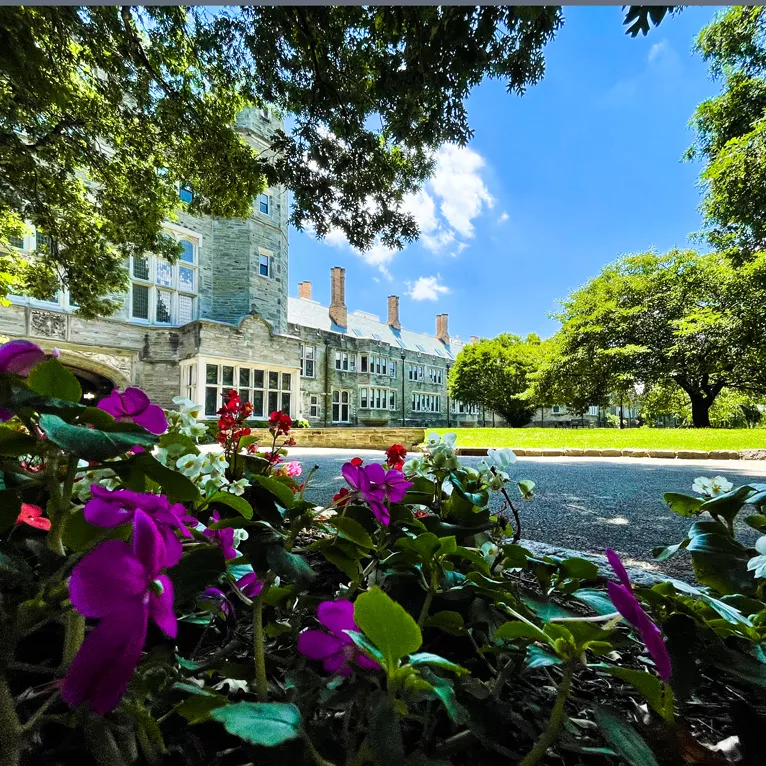Applying to Grad Schools
Which School?
Choose which programs interest and excite you. For a place to start, look under engineering and technology at www.gradschools.com. and find architecture. Search by geographic location. This site will give you links to every graduate program.
Graduate Programs into which our students have been accepted over the last 10 years:
- Yale University School of Architecture
- Harvard University Graduate School of Design
- SCI Arch
- University of Pennsylvania School of Architecture
- Parsons School of Design
- Rice
- Berkeley
- Columbia University
- Massachusetts Institute of Technology
The Portfolio
The portfolio is often the single most important part of your application. Excellent grades, board scores, personal statement, extra curricular activity and recommendations aside, the quality of your submission will be what makes or breaks your acceptance. Students often take an additional year to work in an office and work on a portfolio before making application to school. If you are intent on going directly to graduate school upon graduation, then start planning the format of and preparing the content of your portfolio in the summer before your senior year. Applications are due the middle to the end of December to the middle of January. That fall semester has a way of slipping by quickly. Make sure that you understand the capability of the computer equipment that you have available, the costs of printing or reproduction and so on before you begin.
Each graduate school may have slightly differing requirements for their submissions so be sure to check the guidelines of the schools to which you intend to apply. Generally, however, architecture schools are interested in gaining an understanding of your design aptitude and ability to think in three dimensions. The portfolio should include examples of design work done in the architectural design studio courses that you have taken, but should also include work that you have completed in fine arts classes, photography, construction, model building, sculpture, computer graphics, and work that you have done in office settings if appropriately labeled and attributed. You should always include examples of your free hand sketching ability.
Format usually must be 8-1/2" x 11". You may purchase a simple portfolio binder or do your own binding. In either case, you should avoid overly expensive formatting, as well as anything bulky, oversized, or too delicate. Often there will be a number of people who review the portfolios and each of these people will be required to look at hundreds of submissions. Therefore you should demonstrate clarity, simplicity, beauty and design sensitivity in the presentation of the information as well as in the information itself.
Including originals in your portfolio is not recommended. Most likely your best approach will be to scan images into a digital format and use graphics/desktop publication software to format the materials. Quality of the scanning and printing will have a great effect on the final results. Play around with the kinds of papers available for printing to see what you like, and how the papers respond to the printing.
Daniela Holt Voith and Sam Olshin are both available for review of content and commentary on presentation methodology.
Examples are available for view at Daniela's office. You may make an appointment to meet with her to see these or she may bring them on specified day to the studio.
Ask Someone Who's Been There
Below is a list of Tri-Co grads or faculty in the design fields willing to offer perspectives and advice. Please use discretion in writing to these people who have kindly agreed to serve as advisors for application to school and commentators on the programs they attended.
- Jen Parker (UVA)
- Will Hayes (Penn)
- Bianca Siegl (UCLA)
- Adele Swank (Columbia)
- Noah Walker (Harvard)
Recommendations
Recommendation letters are important and the writing of them represents a large time commitment on the part of the recommender. Please ask people whom you think will write very heartily on your behalf and be organized about the requests. If applying to multiple schools, send all of the forms, envelopes with stamps on them, and a cover letter which lists all of the schools and the due dates for the receipt of the recommendation. If the letters have to go back to you, indicate by when you would like to have the letters to include in your application. Professors, employers, people who are in the profession whom you have contact with are all good as potential letter writers.

Contact Us
Department of Growth and Structure of Cities
Old Library
Bryn Mawr College
101 N. Merion Avenue
Bryn Mawr, PA 19010
Phone: 610-526-5334